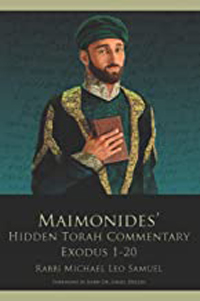Moses did not write the entire Torah
The rational Spanish sage Abraham ibn Ezra (1089–1164), whose views are included in most rabbinical Bibles with commentaries, stated that Moses did not write the entire Torah. Realizing that Moses was on top of the mountain alone where he died and did not descend to report what happened there even before he died, Abraham ibn Ezra states that Moses did not write all twelve passages in this chapter. He suggests that the chapter was written by Joshua who knew what occurred through prophecy. [Rabbi Dr. Israel Drazin]
Moses did not write the entire Torah Read More »
Israel Drazin-Rabbi Dr., Jewish Religion


